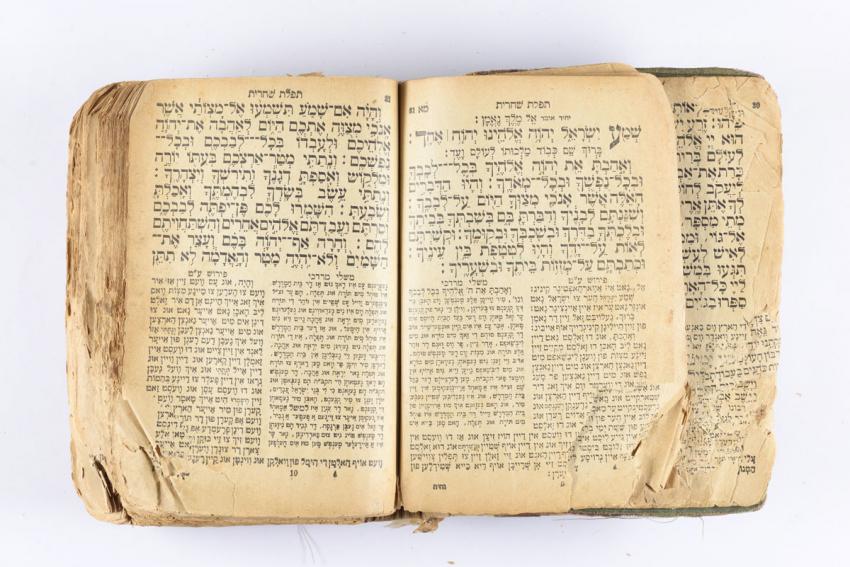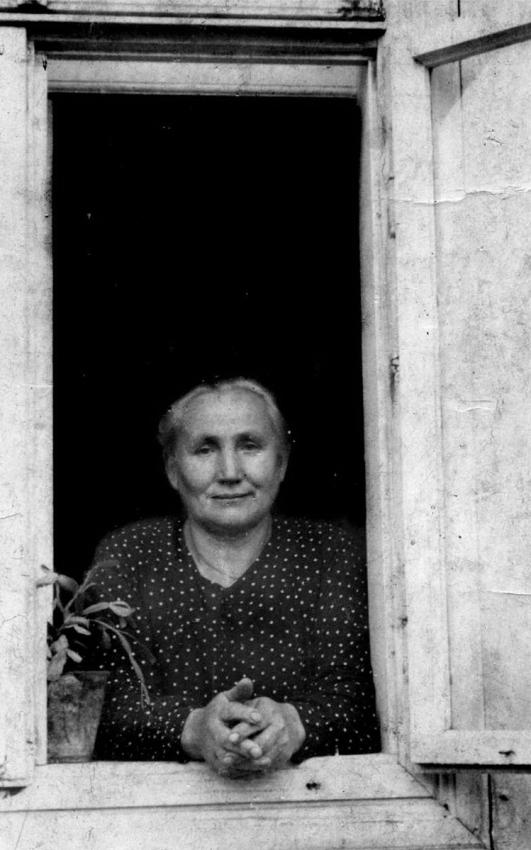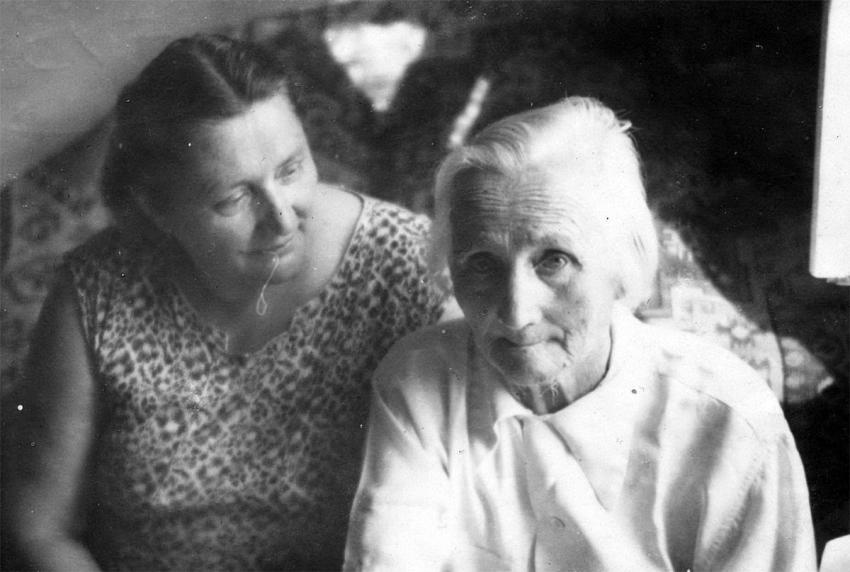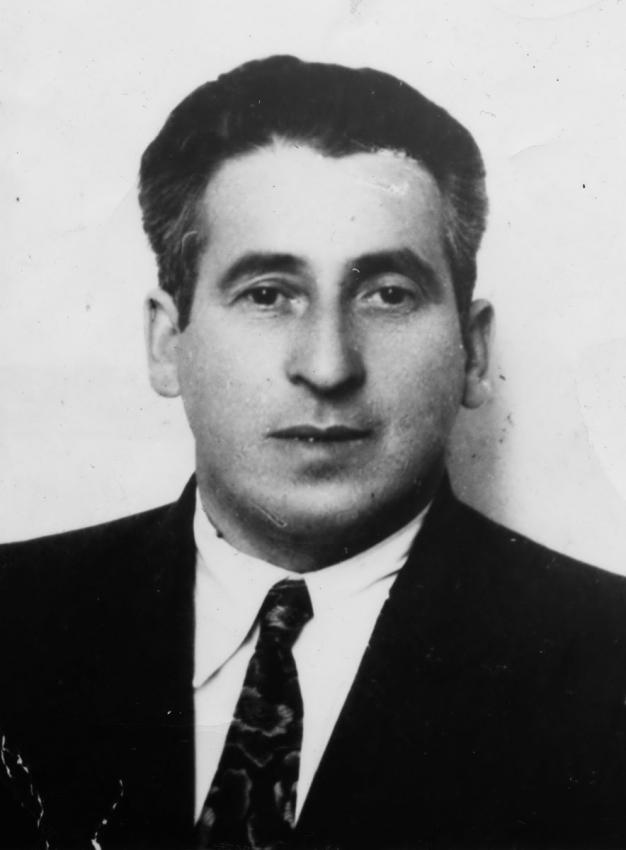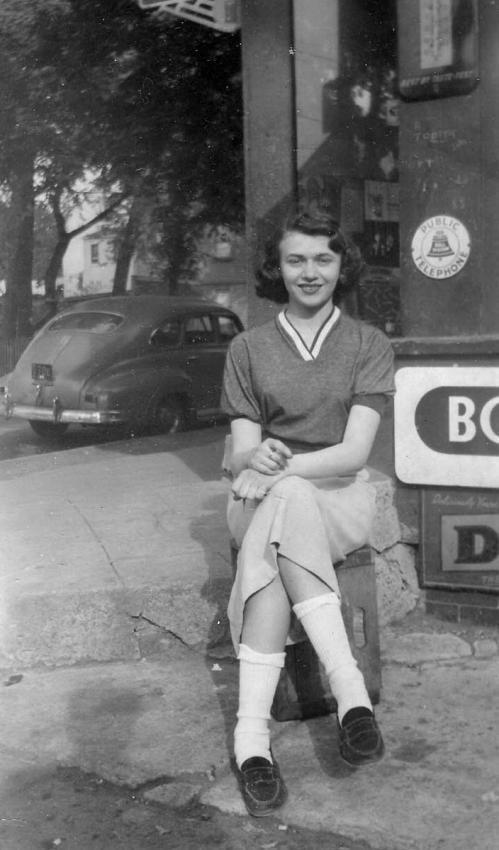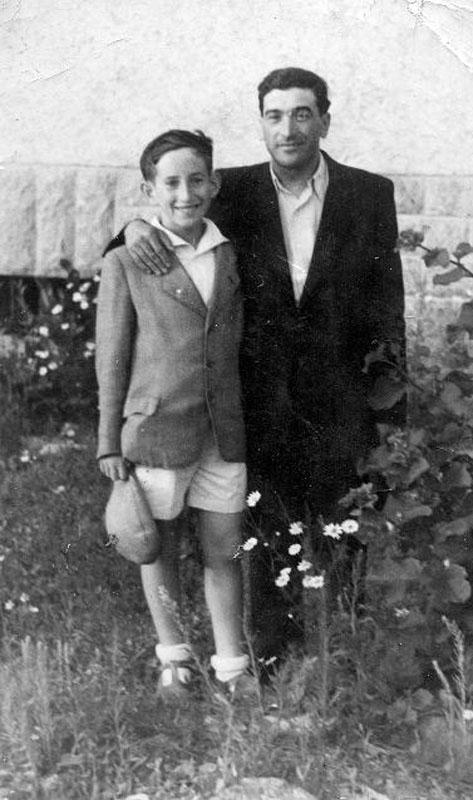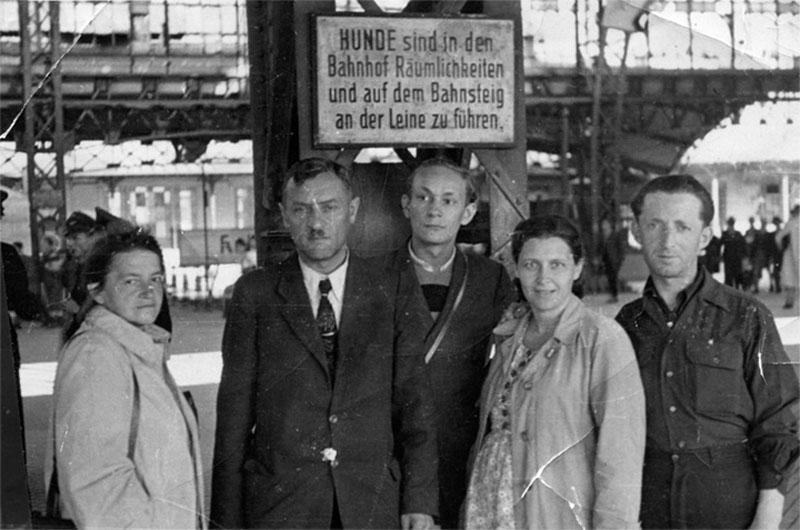Before the war, Chana and Moshe Malc lived in the town of Sokal, Poland (today Ukraine). Their son Chaim was born in 1936, followed by their daughter Lifsha in 1940.
Moshe, the son of cattle dealers, travelled often in the vicinity. With the outbreak of war, Sokal came under Soviet rule and the family suffered economic difficulties. In 1941, after the occupation of the town by the Germans, attacks against the Jews by their Ukrainian neighbors became commonplace.
The ghetto in Sokal was set up in 1942 and with its establishment, the Germans began rounding up Jews and deporting them. During one of the large roundups, Chana hid her six-year-old son, Chaim in the attic of one of the buildings in the ghetto and rushed with her toddler, Lifsha, to hide in a cellar with a group of 30 other Jews. One of the Judenrat officials who was forced to join the hunt for hidden Jews, heard Lifsha crying, found the hidden group and took her to the German soldier in order to keep him from discovering the cellar. Meanwhile, Chaim remained on his own in the attic where he was hidden for a full day.
After losing their baby daughter, Moshe and Chana searched for somewhere to hide outside the ghetto. They approached Franciszka Halamajowa, a Polish acquaintance, and she agreed to hide them in the attic above her pigsty.
Franciszka and her daughter Helena, a young woman in her twenties, bravely cared for the hidden Jews. Halamajowa's son Wilmus, who worked in the area, also assisted. The Halamajowas weren't deterred even when other Polish residents fled the area for fear of attacks by their Ukrainian neighbors. Neither did they flinch when they were threatened with murder if they wouldn't leave. Halamajowa believed that God had sent the Jews to her, and that it was her religious duty to help without expecting compensation.
Chana and Moshe Malc went into hiding in November 1942 with their son Chaim, and their extended family – Moshe's mother, Rivka Malc, his sisters Chaya-Dvora, Yetta and Leah with her daughter Chashke. About six months later, they were joined by Moshe's brother Shmelke and the four members of the Kindler family, 13 people in total.
Dr. Kindler, a well-known and respected doctor in the town, extended medical help during the period in hiding. Thanks to his reputation he succeeded in negotiating with Halamajowa's neighbors, who had discovered that she was hiding Jews and threatened to denounce her.
During the long months of hiding under indescribable conditions , difficult ethical questions arose, and the hidden Jews had to make inconceivable decisions. One such dilemma concerned Chashke's incessant screaming. The fear that her cries would give away the hideout and bring a death sentence on them all, led to the decision to give her a cyanide pill. Miraculously, the child survived the poisoning and the group took this as a sign that she was destined to live.
While they were in hiding, Chaya-Dvora Malc succumbed to typhus. She was buried under Franciszka Halamajowa's apple tree.
Throughout the period in hiding, Moshe Malc spent many hours writing a diary and playing chess with his son Chaim. The prayer book that was with them in hiding was well used, as was the Jewish calendar that enabled them to keep track of the time.
A month before the area was liberated by the Red Army, the Germans started to install radar equipment on the roof of Halamajowa's house. For fear of falling into the hands of the Nazis the group considered taking their own lives, but suddenly the Germans withdrew.
The Malc and Kindler families lived in hiding for some twenty months.
"There were high spirits in the hideout in the attic […] [We emerged on] a sunny day in July. We could hardly talk or walk. I was eight years old."
From the testimony of Chaim Malc
On leaving their hideout, the Malc and Kindler families were amazed to discover that Halamajowa had hidden another Jewish family of three in her home, who had even assisted Halamajowa with the cooking and laundry for the Malc and Kindler group.
After the war, the Malc family left Sokal for a DP camp in Germany. There Moshe and Chana had another son, Nathan. The family immigrated to the United States.
Of the 6,000 Jews living in Sokal before the war, only 30 Jews survived, among them the 16 that Franciszka Halamajowa saved. The prayer book was donated to Yad Vashem. On March 29, 1984, Yad Vashem recognized Franciszka Halamajowa and her daughter, Helena Liniewska-Halamajowa, as Righteous Among the Nations.
Yad Vashem Artifacts Collection
Courtesy of Judy Malc, Tel Aviv, Israel
